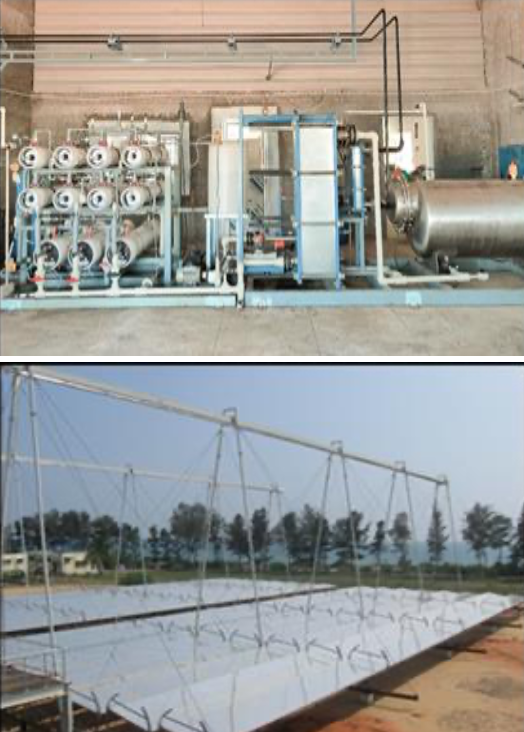News report by Mohammad Omar Malik.
Ramanathapuram, June 27: Narippaiyur, a village in the drought prone district of Ramanathapuram, is located in the South- East of Tamil Nadu. It is one of the driest regions, severely affected by the lack of potable water due to extremely poor sources of ground water. The district, has 4,23,000 hectares of land and has a long coastal line measuring about 265 kilometers which is nearly 1/4th of the total length of the coastal line of Tamil Nadu.
To solve the severe scarcity of water, a sea water desalination system has been installed in the village. This system uses the solar thermal Forward Osmosis (FO) method for water purification. This is a process by which particles pass through a membrane from a less concentrated solution into a more concentrated one. The village is receiving 20,000 litres of fresh water per day. This means supply of two litres of good quality drinking water per person for 10,000 people in the village daily. The water will be supplied to the public with the help of the panchayat.
The Water Technology Initiative of Department of Science & Technology (DST), Indian Institute of Technology Madras (IITM), KGiSL Institute of Technology (KITE), Empereal– KGDS Renewable Energy (P) and ICT Mumbai have all contributed in different ways to make this plant feasible.
Some of the advantages of the FO system developed include high recovery of water, low energy consumption, easier and effective cleaning of the membrane, longer membrane life and lower maintenance costs. This initiative paves way for scaling up the technology in the coastal rural areas of India to address shortage of potable water.


